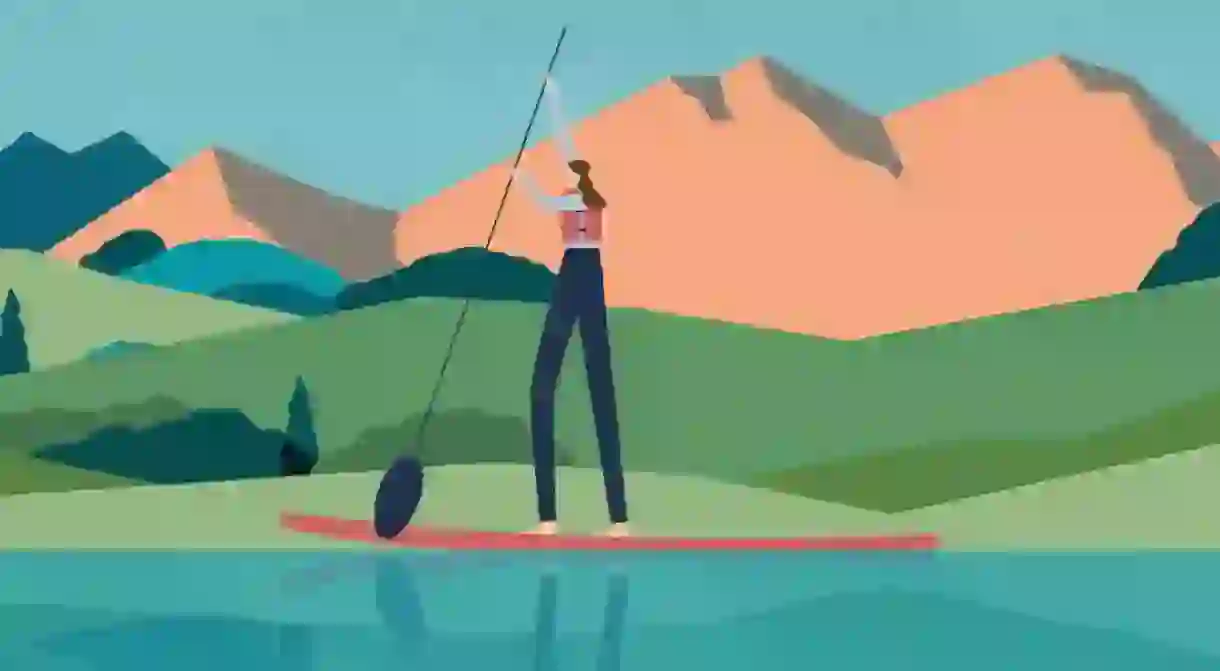How Paddleboarding Can Clean Up London’s Waterways and Beyond

Culture Trip went out on patrol with adventurer, athlete and environmental campaigner Lizzie Carr to navigate the canals of East London, collecting every piece of plastic found along the way and reducing the amount of pollution across the area’s canals.
In 2016 Lizzie Carr launched a campaign to help rid the UK’s inland waterways of plastic. Over 22 days she completed a 643-kilometre (400-mile) journey from the River Wey in Surrey to Kendal in Cumbria, navigating England’s connected waterways simply through paddle power – the start of the #PlasticPatrol campaign. Reflecting her love of the outdoors and adventure, Lizzie’s paddleboard patrols began as a solo project but have since grown, with the aim of encouraging people to get out on the water and do their own bit.

The idea was born out of a desire to help people understand that a global problem could be tackled at a local level, making people more aware and, crucially, more likely to act. Along the way she geotagged pieces of plastic to raise awareness about the extent of the problem.
“There were different layers to the journey,” says Lizzie. “I wanted to challenge myself and take something on, but I also wanted to highlight an issue that was important to me. I wanted people to care about canals and rivers and to feel more protective of their local environment.”
A year later, Lizzie took her campaign international, and became the first woman to SUP (Stand Up Paddle) the English Channel. As with her English expedition, she collected plastic along the way, which was then analysed. Worryingly, microplastics were found throughout the entire route, meaning that they now exist in the human food chain through the fish that we have consumed.

The two campaigns, from inland waterways to the open water, mirror the journey taken by the plastic itself, which is often dumped inland before finding its way into the oceans. The extent of pollution in the world’s oceans is severe, and it’s rising at an alarming rate. Of the total pollution, 80 percent comes from land-based sources.
A key fact, highlighted by Carr on our patrol, was the importance of collecting the smaller pieces. Bottles and bags seem the obvious problem – and are still a concern – but it’s the tinier pieces that are actually more dangerous to wildlife because they can be consumed. It’s a similar story in the ocean, where even the smallest pieces (microplastics) that have broken down from larger pieces get eaten by plankton before working their way up the entirety of the marine food chain.
One report, by Eunomia Research & Consulting, also showed that “94 percent of the plastic that enters the ocean ends up on the ocean floor, with an estimated 70 kilograms of plastic per square kilometre of sea bed on average”. The most alarming, and damning, aspect of this issue is that if polluting continues at the current rate, by 2050 there will be more plastic in the ocean (by weight) than fish – something that people can help combat in this incredible way.

There are a number of organised clean-ups happening over the course of the year as part of the #PlasticPatrol campaign. You can find out how you can help by heading here.
To coincide with Earth Day, 22 April, Culture Trip examines sustainable cities through the lens of architecture, food, waste and green spaces.













